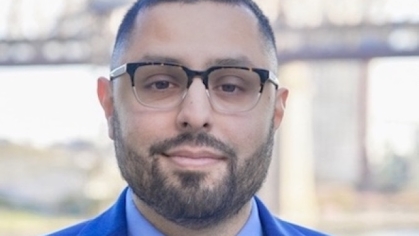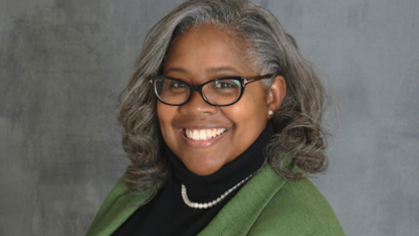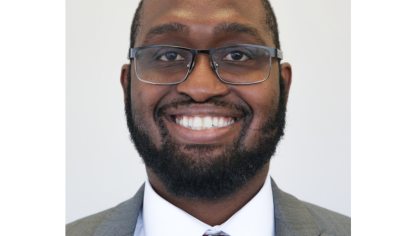By DuWayne Battle, PhD, MSW
Black social workers are counted among the hidden figures when recalling what many students are exposed to during their study of the history of social work. Truthfully, one would need to concede that the important care of individuals, families, and communities existed before social workers were established with a professional identity. People in need were often able to find much needed assistance from family and religious communities. There were, undoubtedly, untold numbers of caring and determined individuals who rose to the occasion and worked tirelessly to help people in need. Counted among this group of people were Black men and women, people like Absalom Jones, Mathilda Taylor Beasley, and Ida B. Wells-Barnett just to name a few. Jones was an African man who, though enslaved, purchased freedom for both his wife and himself and founded the Free African Society. Beasley, an African woman, overcame slavery and opened an orphanage for Black girls in Georgia. Wells-Barnett, perhaps the better known of the three, worked to abolish lynching, opposed segregation in public education, and founded a settlement house for unemployed Black men in Chicago (Battle & James, 2012; James & Battle, 2011; Norwood, A. R., 2017).
Closer to home, William M. Ashby has been recognized as New Jersey’s first Black social worker. Born William Mobile Ashby, the son of free Blacks, in the Tidewater region of Newport News, VA, Ashby lived 101 years until his death in 1991 in East Orange, New Jersey (Hevesi, 1991). Although he lived a rich and full life, dedicated to social work and social justice, his journey was fraught with the prejudice, discrimination, and racial injustice that is still so ingrained in the systems and structures in American society. Ashby traced four generations of land ownership in his family. However, his grandfather was brutally beaten to death by a gang of four white men, jealous of his success. A pivotal moment in his own life came when, as an 11-year-old, Ashby saw a man that he knew hanging from a sycamore tree in Newport News. He wondered if this lynching victim, with his mouth open, was asking why he was tortured and murdered. Four years later, Ashby arrived in Newark, NJ. A year later, he moved to Pennsylvania to attend Lincoln University, from where he graduated in 1911. Two years later he began studies at Yale University, and in 1916 he earned a divinity degree. Notably, while at Yale, Ashby invited Booker T. Washington to speak at what would become Washington’s last public address. After leaving Yale, Ashby began his career as a social worker, becoming New Jersey’s first Black social worker in 1917, the same year that the National Conference of Charities and Correction became the National Conference of Social Work and Richmond’s Social Diagnosis was published (Ashby, 1981; Hevesi, 1991; The Newark Public Library, 1997; Stuart, 2019).
Counted among his many accomplishments was the founding of New Jersey’s first Urban League in Newark. He also founded the Urban League in Elizabeth, NJ, and he moved to Springfield, IL, where he established another Urban League. Ashby was instrumental in the founding of the Newark Welfare Federation and Community Chest, the precursor of the United Way of Essex and West Hudson, which was founded in 1923. He also helped to start the Fuld Neighborhood House. Ashby was co-founder of the Newark Preservation and Landmarks Committee, which would later publish his book, Tales without Hate, which recounts his civil rights work (Ashby, 1981). He was also a member of the Newark Human Rights Commission and the Newark Senior Citizens' Commission. As a tribute to honor his work and contributions, a Newark mayoral proclamation was issued declaring William Ashby Day in Newark in 1974 (The Newark Public Library, 1997). The United Way of Essex and West Hudson established the William Ashby Community Service Award, which is a distinguished recognition that embodies what it means to be a community servant leader (Kazour, 2016). Also, the new headquarters for the New Jersey Department of Community Affairs was named after him in 1987 (The State of New Jersey DCA, n. d.). A monument in his honor was dedicated in Newark’s Central Ward in 1990, and just last year there was a call to honor Ashby with his statue in Washington, DC (Farthing, 2020).
During our 2021 Celebration of Black History Month, William M. Ashby is remembered as a social worker and community leader who embodied the best of our noble profession. He dedicated his life to fighting anti-Black racism and promoting civil rights and workers' rights, as well as social, economic, racial, and environmental justice.
References:
Ashby, W. M. (1981). Tales without Hate. Newark Preservation and Landmarks Committee.
Battle, D. & James, C. (2012, April). "Discovering the hidden history of African American social workers and social reformers." Presentation at the annual meeting of the Southwestern Social Science Association, San Diego, CA.
Farthing, D. L. (2020. "N.J.‘s first Black social worker deserves statue." The Jersey Journal. https://www.nj.com/opinion/2020/06/honor-states-first-black-social-worker-with-dc-statue-kudos-on-virtual-film-fest-stop-playing-games-with-kids-and-teachers-lives-letters.html
Hevesi, D. (1991, May 19). "William Ashby, longtime worker for Civil Rights, is dead at 101." The New York Times. https://www.nytimes.com/1991/05/19/obituaries/william-ashby-longtime-worker-for-civil-rights-is-dead-at-101.html
James, C., & Battle, D. (2011). Remembering African American social workers during social work month. NASW-NJ.
Kazour, M. (2016, December 8). Newark 350 committee chairman honored by United Way of Essex-Hudson: The Ashby Community Service Award is a distinguished recognition that embodies what it means to be a community leader. The Patch. https://patch.com/new-jersey/newarknj/uwewh-host-25th-anniversary-ashby-dinner-newark-club
Norwood, A. R. (2017). Ida B. Wells-Barnett (186-1931). National Women’s History Museum. https://www.womenshistory.org/education-resources/biographies/ida-b-wells-barnett
Stuart, P. H. (2019, March 26). Social work profession: History. Encyclopedia of Social Work. National Association of Social Workers Press and Oxford University Press. https://doi.org/10.1093/acrefore/9780199975839.013.623
The Newark Public Library. (1997, March 6). Another four who stood for something. https://knowingnewark.npl.org/another-four-who-stood-for-something/
The State of New Jersey Department of Community Affairs. (n. d.) Did you know? DCA fun facts. https://nj.gov/dca/home/50th/didyouknow.html
This story was created in partnership with Rutgers School of Social Work's Inclusion, Intersectionality, Diversity, Equity, and Advancement (IIDEA) Committee in support of our commitment to diversity, equity, and inclusion.



